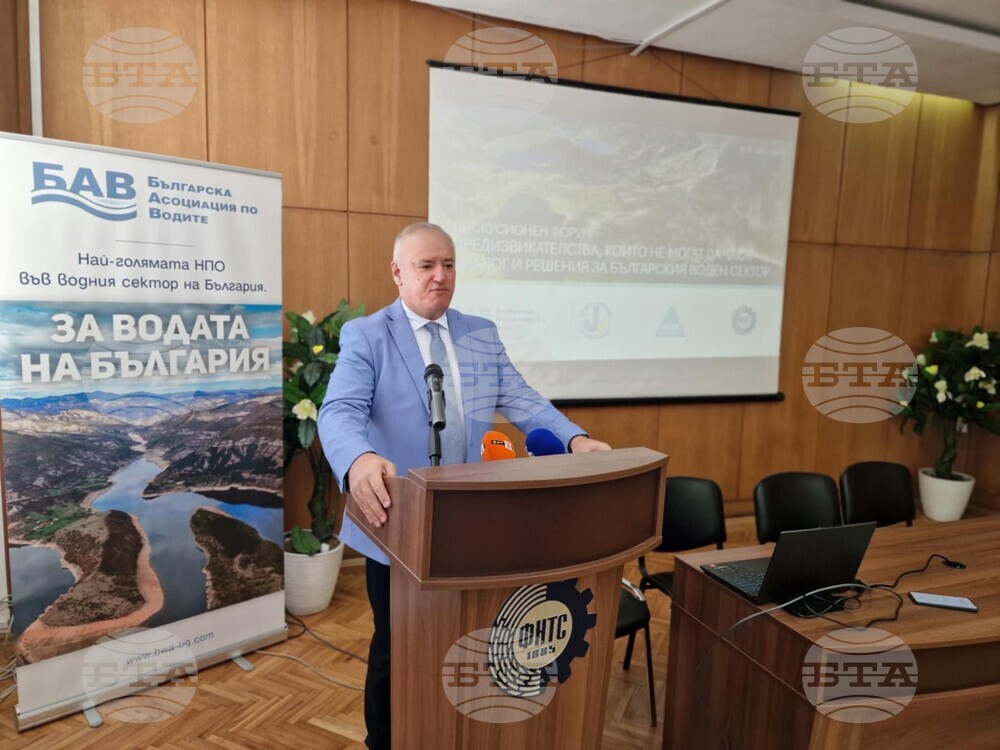site.btaIntegrated Water Management Still Underdeveloped in Bulgaria, Deputy Minister Says


The integrated approach to water management in Bulgaria remains largely underdeveloped, said Deputy Minister of Environment and Water Atanas Kostadinov during a national discussion forum on Tuesday. According to him, this applies to all levels – from ownership and governance to the purposes and uses of water, as well as the balancing of competing public interests, such as drinking water supply, irrigation, and energy generation.
“We are still far from where we should be. There is much room for improvement when it comes to the integrated use of water resources,” Kostadinov said.
He emphasized that Bulgaria has yet to fulfil its obligations under the Urban Waste Water Treatment Directive. With the adoption of a new package of EU directives and especially the Water Resilience Strategy, the sector now faces a new set of ambitious targets through 2050. Among them is the requirement for EU countries with above-average water losses to submit national action plans by 2028, to be enforced by 2030. Another key goal is a minimum 10% reduction in water losses across the EU by the end of this decade.
Kostadinov called this a challenging but achievable target.
Addressing representatives from across the water and sanitation (WSS) sector, the Deputy Minister advocated for a new, more collaborative approach to tackling Bulgaria’s chronic shortcomings — not only in transposing European directives into national legislation, but also in their implementation, oversight, and enforcement.
Kostadinov proposed that the state should no longer bear the burden of legislative transposition alone, but work in close cooperation with stakeholders from the sector. This inclusive approach, he suggested, could help demonstrate that Bulgaria is capable of delivering effective and sustainable solutions.
Ivan Ivanov, Bulgarian Water Association (BWA) President and moderator of the forum, also emphasized the need for constructive dialogue with institutions. “The role of the association is not to criticize, but to advise,” he said.
“This dialogue must begin before the transposition of the new Urban Waste Water Treatment Directive,” Ivanov urged. “It should also address our obligations under existing directives, in the hope that the water sector will shed its reputation as the ‘underachiever in the class.’”
He noted that more than 200 towns and villages in Bulgaria with populations over 2,000 still lack functioning wastewater treatment plants — a requirement that was meant to be met by 2014.
The event was also attended by Ivaylo Kastchiev, Director General of the Water and Sewerage Services Directorate at the Energy and Water Regulatory Commission.
Kostadinov was the only government representative to respond to the invitation from the organizers. Invitations were also sent to the Ministry of Environment and Water, the Ministry of Regional Development and Public Works, the Ministry of Health, the Ministry of Economy and Industry, and the Ministry of Energy.
The forum was organized by BWA in partnership with the Union of Water Supply and Sewerage Operators in the Republic of Bulgaria and the Federation of Scientific Technical Unions in Bulgaria. The event took place at the Federation’s headquarters on G.S. Rakovski Str. in Sofia.
/RY/
news.modal.header
news.modal.text